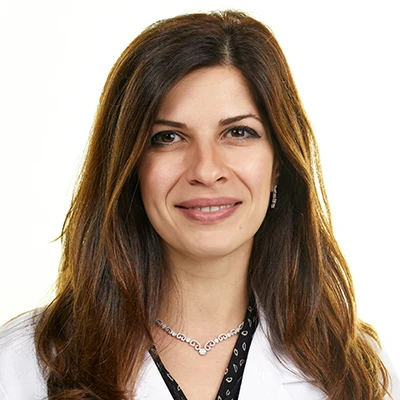Q: To start, can you tell us what you’ve been up to since fellowship?
Dr. Moghbel: Right after I wrapped up my final fellowship year at Stanford, I went on maternity leave for two months and had my second son. After that, I started back full time at Vituity. I now mainly work from home providing teleneurology and teleneurohospitalist coverage for multiple hospitals.
It’s so gratifying to treat patients who need acute neurology care but live in areas where specialist coverage is scarce. Thanks to telehealth, neurologists like me can respond in minutes to initiate time-limited treatments and promote optimal outcomes.
If you had told me three years ago that this would be possible, I wouldn’t have believed it. Teleneurology has its challenges, but I don’t think any of us ever imagined its possibilities until recently.
Q: Since you returned to Vituity last fall, there have been some exciting developments in your career. What’s happened?
Dr. Moghbel: : Last year, Vituity started providing IONM services to one of our hospital clients. The timing was ideal for me. I’d focused both my clinical and administrative fellowships on IONM and was keen to continue that work. I took over all intraoperative monitoring cases for that hospital. And then in January 2022, I was promoted to medical director for Vituity’s IONM program.
Q: Congratulations! All while working remotely?
Dr. Moghbel: : Yes, mostly at home. When I’m monitoring a procedure, I’m working with a technologist who’s present in the operating room to place the electrodes and make sure the system is transmitting everything properly. And then I can monitor the signals and provide feedback from anywhere. As Vituity’s program grows, I expect to provide this service for multiple hospitals.
Q: Seems like very quick advancement. Can you share a little about how Vituity supported your growth as a leader?
Dr. Moghbel: : As a medical director, it's very important to know the business and administrative aspects of medicine. My Vituity Administrative Fellowship helped me to understand billing, contracts, hospital operations, and everything that happens in neurology beyond clinical care. It also provided the critical mentoring and support I needed to imagine myself in this role — not 10 years from now, but soon. And my fellow project — which involved creating IONM and neurodiagnostics webinars for medical directors and hospital administrators — positioned me well for this specific opportunity.























